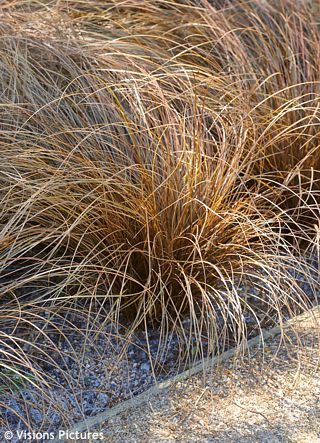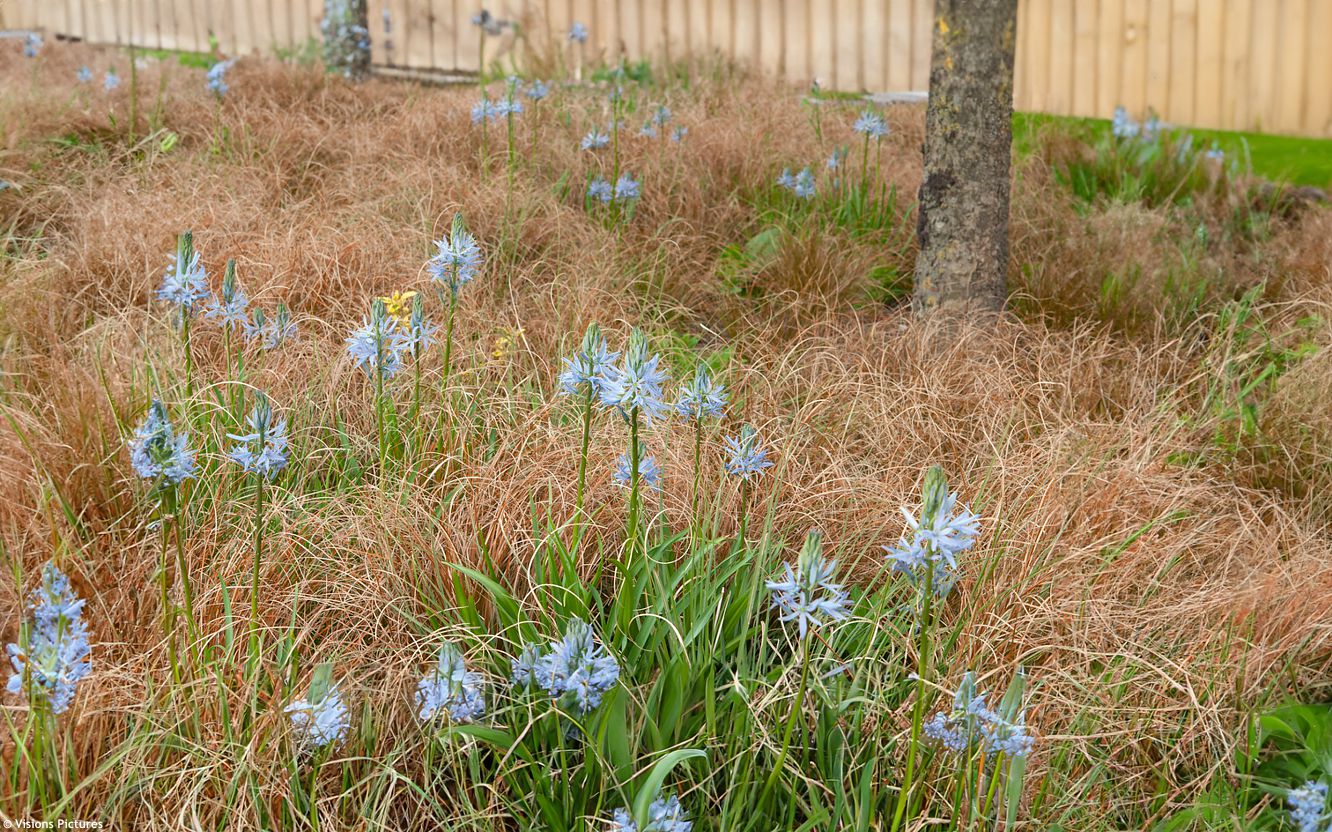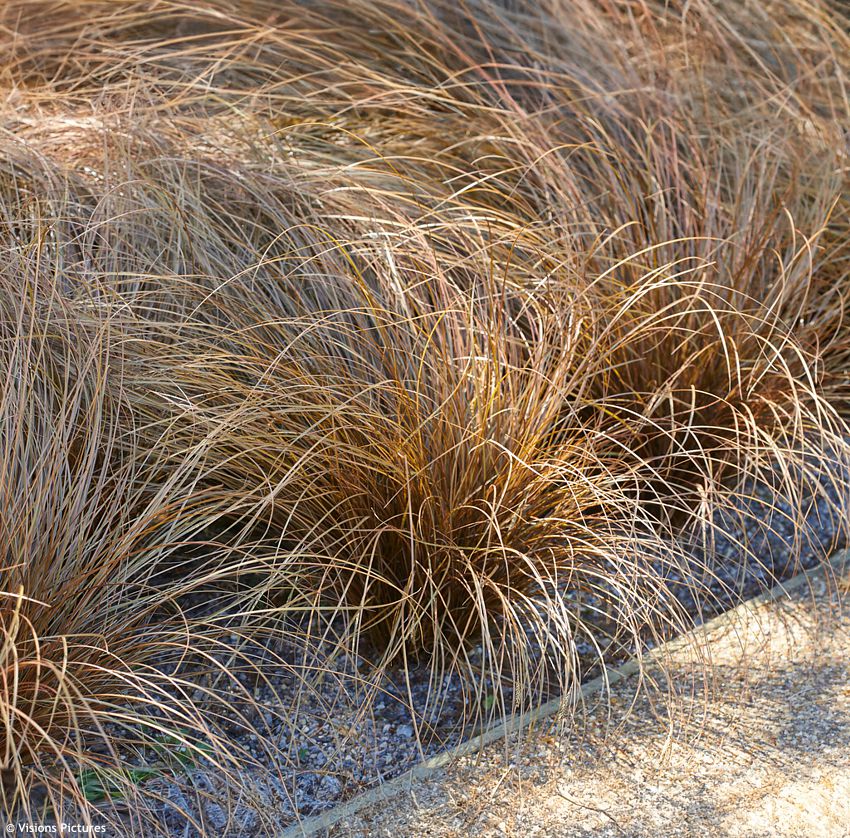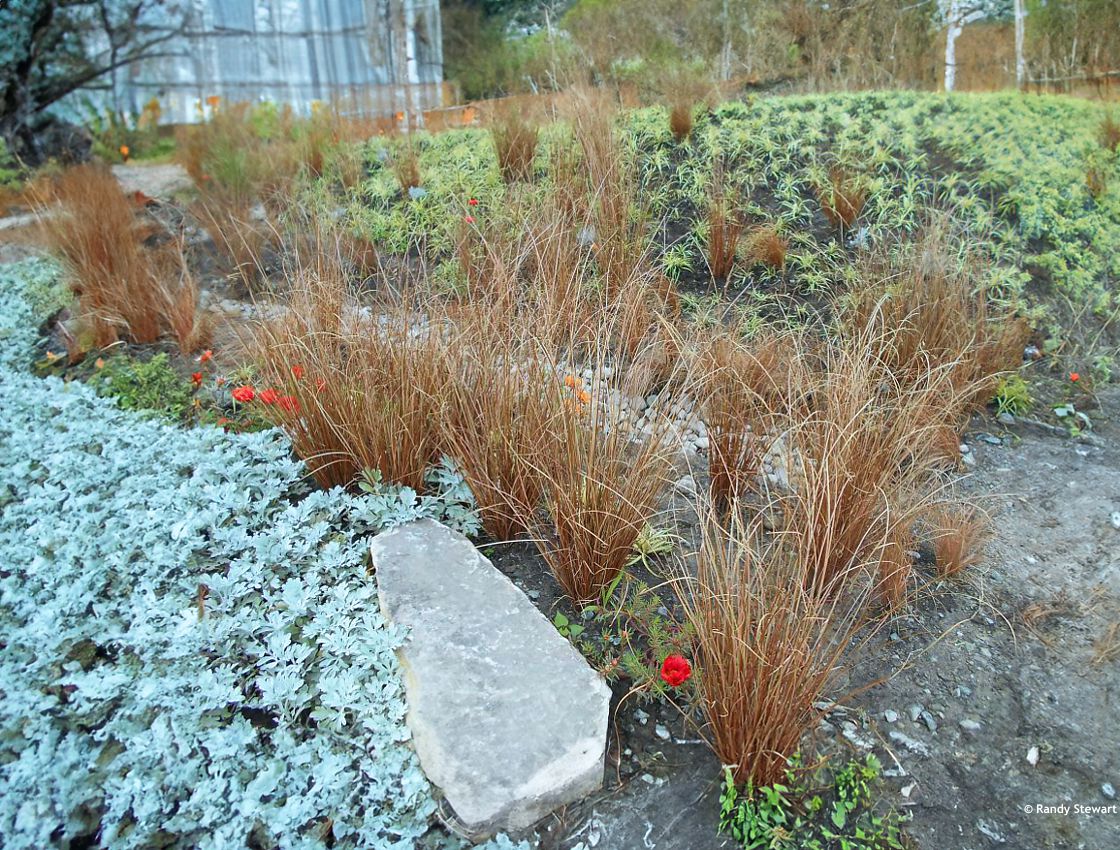Carex comans 'BRONZE FORM' New Zealand sedge
Carex
Sedge (carex) is an extensive genus of evergreen and deciduous grasses, for which there is a uniting feature, so important that it gave them their scientific name – leaf margins are more or less sharp like precisely cut sheets of office paper. There are more than 1,500 (some believe up to 2,000) species of sedges and they appear in practically all climate types from the hot tropics to arctic regions, where they form one of the most important groups of flora that is able to survive in such inclement conditions. They differ in size, colour, leaf width, flowering, and habit. Some are tufted, others are rhizomatous and creeping so they can form an impenetrable ground cover. Most sedges, including those that are native to Central Europe, are naturally found in moist to wet habitats, which is quite a paradox, since many of them cope well with long-term drought if they are not in a sunny location.
New Zealand sedge is an evergreen perennial grass, usually featuring brownish foliage. Bronze Form is an upright growing variety with thin leaves in pale reddish-brown colour with bronze or orange hues. Only side leaves arch a little. They combine well with broad-leaved perennials with contrasting foliage colour. From a very similar carex buchanani it differs by more upright tufts, slightly broader leaves and non-mounding habit.
The bronze foliage sometimes brings a feeling of a dead tuft, therefore, it is best used in mass plantings and wisely inserted among such plants where the colour will make sure it was deliberately designed that way. From midsummer appear insignificant flowers atop short stems.
New Zealand sedge is a low-maintenance plant requiring no extra care once established. Though, for best results you can comb away old and weak leaves in late winter. Alternatively, you can cut it back every 4-5 years for rejuvenation. Sedges are often used for landscapes where neglect is expected. This one prefers full sun or part shade and evenly moist (not wet) ground. It is drought-tolerant once established. Hardy to min. -24 °C (USDA zone 6), possibly a bit more.
Last update 28-11-2023
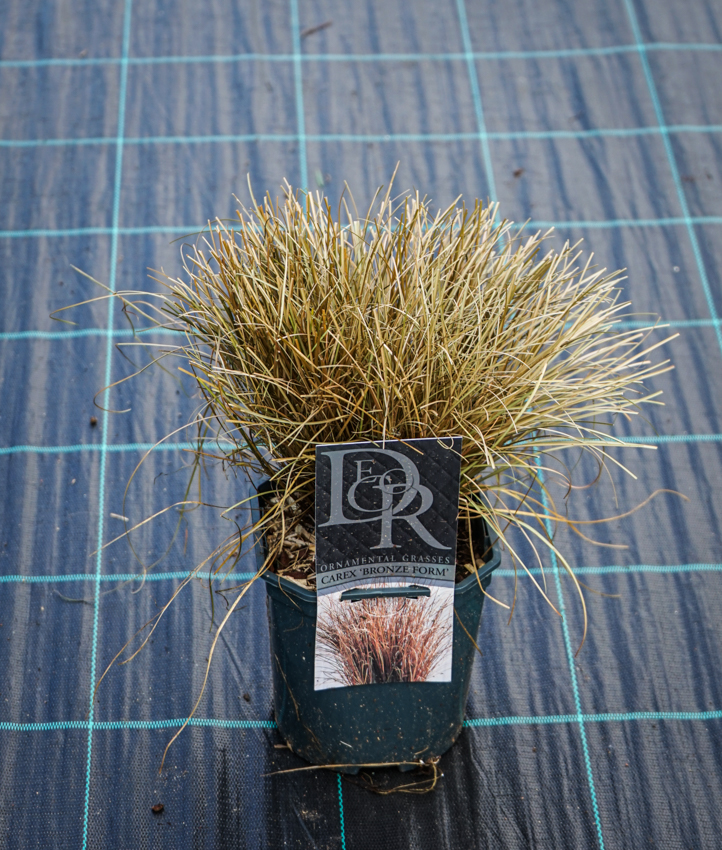
261,25 Kè

261,25 Kè
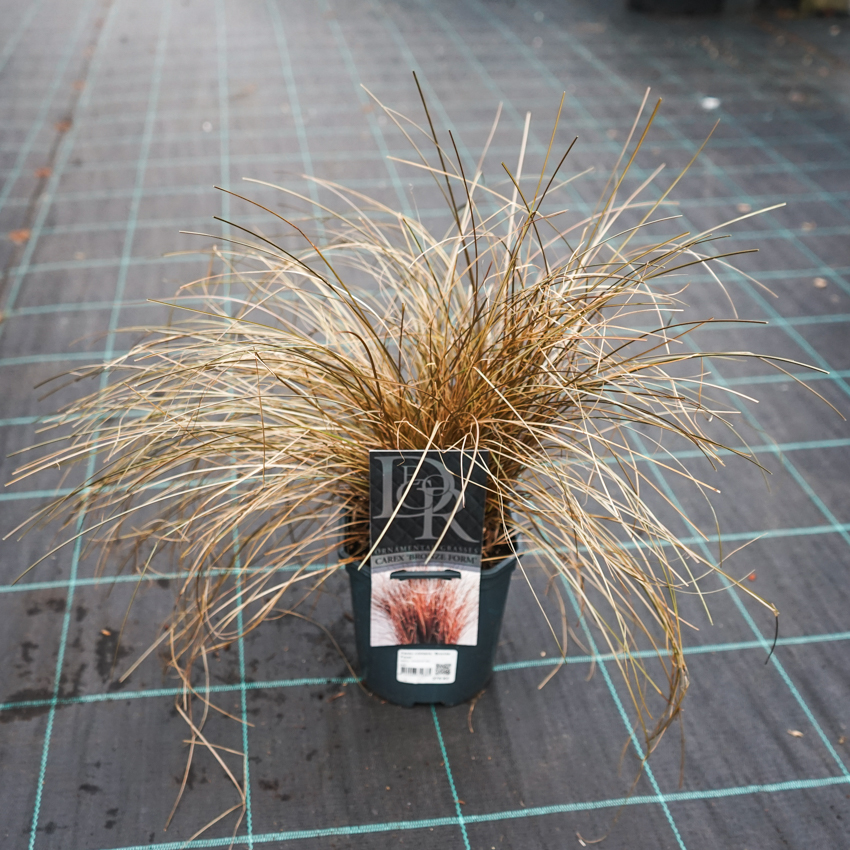
261,25 Kè
Goods are shipped all over Europe. For Russia and U.K. and for further details please read about SHIPPING OPTIONS HERE.
Are you interested in a serious discount for orders NOV-FEB? Check your options here.
THE PRICES INCLUDE VAT of 15%. For quick conversion you can use 1 CZK = approx. 0.04 EUR
- STANDARD QUALITY - Plants of this group are 1st class quality with number of branches and overall density adequate to their size and age, considering they were container grown.
- DE LUXE QUALITY - This label guarantees a luxurious quality of manually selected plants that, compared to their height and age, are exceptionally dense and beautiful.
- EXTRA - These plants are usually mature and bigger specimens with exceptional overall appearance.
- STANDARD (as described in the plant form) means a tree with a trunk of 190-210 cm and a crown at the top, unless specified differently. The commercial size for trees is their girth measured in the height of 1m from ground.
- HOBBY - These plants are of the same quality as our standard-quality plants but younger and therefore cheaper.
- SHRUB - a woody plant with branches growing bushy from the ground level.
- HALF-STANDARD or MINI-STANDARD - a small tree with shorter trunk, its size is usually specified.
- FEATHERED - These are trees with branches growing already from the base of the trunk and up along the stem.
- GRASSES and PERENNIALS - Sizes given usually read the diameter of the pot or the clump, as specified.


































